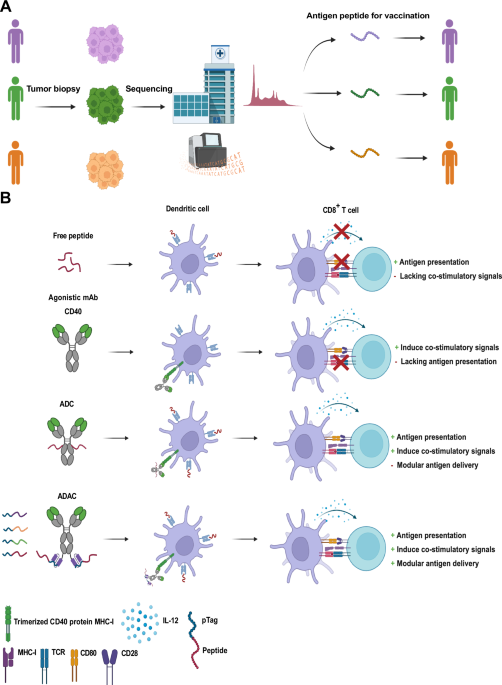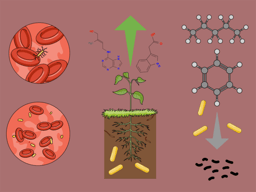Making multispecific capacity of antibodies into a precision medicine tool
Published in Bioengineering & Biotechnology, Cancer, and Pharmacy & Pharmacology
I have worked with antibody and peptide-based therapeutics for a very long time. I started as a PhD student with Professor Thomas Tötterman in 2006 and already back then I was exposed to the protein receptor CD40, expressed by antigen-presenting cells in our body. At that time, Thomas Tötterman and Angelica Loskog actively pursued the task to engage the immune system in the tumor, by using viruses that delivered the ligand to the CD40 receptor, CD40L, into tumors. Through this work we also started industrial collaborations (with Peter Ellmark and colleagues) that led to the development and clinical entry of the mitazalimab antibody, uniquely developed for intratumoral therapy. With our work and others, it also became clear that the best way to utilize CD40 directed antibodies, was to ensure that their agonistic function, was coupled to antigen-presentation, for optimal engagement of the powerful T cell army in our body.
Hence in 2015/2016 an idea started to come to life focusing on a bispecific antibody concept, that would allow us to not only rely on the tumor to be the "vaccine" (eg tumors shedding tumor-derived antigens) but rather that we could engage and provide the tumor antigens as synthetic peptide drug cargoes, together with the antibody. However, to do so, we would need to use the concept of an antibody-drug conjugate (ADC) approach. This was not ideal as mutated genetic changes in the tumor creates neoantigens that are unique for each patient and as ADCs are static, hence I wished to build a more agile and modular system, a system that we later coined the Adaptable Drug Affinity Conjugate (ADAC) technology was therefore the goal of our work. We started off with assessing that idea in a proof-of-concept work together with the Swedish Drug Development and Discovery platform at the Science for Life Laboratory (SciLifeLab DDD platform).
Helena Persson was my companion in this and Mohamed Eltahir, a very engaged PhD student, made progress and we published our first work in Advanced therapeutics on this idea/concept (https://doi.org/10.1002/adtp.202200008). However, we still wished to enable this idea to enter the clinic, thus we progressed our studies, now also in collaboration with Professor Johan Rockberg at KTH. With a novel CD40 agonistic antibody that we selected via the SciLifeLab DDD platform and the work on antibody formats for optimal developability and agonistic activity we are now ready with a drug for clinical testing.
The work that we have now published show the range of capacities we needed to explore from early drug screening, drug optimization steps, activity testing, deimmunization processes, on-target and off-target analyses and in vivo anti-tumor activity. In parallel with the work that we have performed as an academic/industrial collaboration, we have also engaged in building a company, Strike Pharma AB, that is now involved in taking this innovation to clinical testing. But to also explore if the tag and tag-binding element that we have developed here, can be used for more than peptide drug delivery eg alternative drug cargoe entities.
In Sweden we have the so called teacher exemption or professor privilege rule, that provides us as researchers with the opportunity to drive innovations into industrial use. This is hard work but must be done, as the task is not performed by the universities in Sweden. We as researchers thus have a duty to society to take these actions, to enable new ideas to come to patient and societal use. I hope we manage to do so soon! Today I was also very happy to see that John Gordon, that together with colleagues, enabled the pioneering work on CD40 and antibody-mediated targeting of CD40 back in 1987, shared our published work via linkedin which included a summary of the study. Appreciate that very much and look forward to continue this journey ahead!
Follow the Topic
-
Nature Communications

An open access, multidisciplinary journal dedicated to publishing high-quality research in all areas of the biological, health, physical, chemical and Earth sciences.
Ask the Editor – Inflammation, Metastasis, Cancer Microenvironment and Tumour Immunology
Got a question for the editor about inflammation, metastasis, or tumour immunology? Ask it here!
Continue reading announcementRelated Collections
With Collections, you can get published faster and increase your visibility.
Women's Health
Publishing Model: Hybrid
Deadline: Ongoing
Advances in neurodegenerative diseases
Publishing Model: Hybrid
Deadline: Mar 24, 2026



Please sign in or register for FREE
If you are a registered user on Research Communities by Springer Nature, please sign in